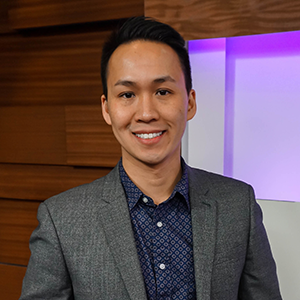
If you are not redirected within 30 seconds, please click here to continue.
Samedi: 10h – 16h HAE

If you are not redirected within 30 seconds, please click here to continue.
If you are not redirected within 30 seconds, please click here to continue.
Are Millennials Driving the Real Estate Market?

Despite any hard evidence, the fear in British Columbia is that rich Chinese families are buying up homes and driving up prices. This may or may not be true, but it seems apparent that one group has a lust for real estate - millennials.
More than half of Canadian millennials (51%) own their home, and of those who are currently renting, 76% plan to become homeowners in the next five years, according to a new BMO report. Nationwide, millennials expect to pay $350,000 on average for their first home, but when you look at the numbers from a provincial standpoint, it’s not surprising that of those surveyed 29% don’t think they’ll ever be able own one.
Average price millennials expect to spend on their first home by region
- Atlantic Canada - $253,990
- Quebec - $234,735
- Ontario - $415,110
- Prairies - $264,388
- Alberta - $386,480
- British Columbia - $478,113
Digging Up a Down Payment
These numbers may seem low at face value, but these are just estimates and national averages. In Toronto, those surveyed expect to spend $465,000 on their first home, that’s $50,000 more than the provincial average, so how exactly are millennials affording these homes? Well like most Canadians, they’re saving for their eventual home purchase, but on average their down payment is just 15% of their estimated purchase price. That’s an average of $52,500! What’s interesting is where that money is going to come from: 65% of those surveyed said they will rely on their parents or other family members to help with up to 10% of the purchase price - does that mean millennials are only saving 5% on their own?
Do Millennials Have Unrealistic Expectations?
As much as I respect parents who want to help their children with a down payment, I think potential homeowners need to be realistic about their expectations. The survey also found the following. As a first time buyer, the above may seem reasonable but if you’re ready to buy you need to be a little more realistic. If you’re finding that the homes that meet all your needs are out of your budget, then you need to consider reducing your wants or looking into cheaper neighbourhoods. A housing correction is entirely possible, but no one can predict when and if that will ever happen. A smarter move would to just buy when you can afford it. A good way to find out if you can afford that mortgage is to use Rob Carrick’s Real Life Ratio calculator.
- 60% have difficulty saving for a house that meets their wants
- 25% are waiting for housing prices to drop
- 42% said it’s hard to find an affordable home in their desired location
- 51% want to buy a detached home.
Affordability is a Serious Concern
When you buy a home, money should be a serious concern, after all, this will usually be the most expensive purchase you’ve ever made to date. There are a lot of things to consider when it comes to costs. If you’re serious about becoming a homeowner, getting pre-approved for a mortgage should be one of the first things you do. By doing this, you’ll know exactly how much you’re approved for so you can start looking for your home. That being said, be mindful of how much you spend.
When lenders do their calculations, they base the amount they lend you on your carrying costs. What they aren’t factoring is how you’re going to afford kids, vacations, and saving for your retirement. It’s well-advised to figure out on your how much you can really afford on your own and to not max out when lenders offer you. You should also try to avoid determining how much you can afford based on your monthly payments. With interest rates being so low, it’s pretty easy to make any number look “affordable” especially if you take a long amortization. There are a lot of things to consider when buying a home. The bank of mom and dad may help you get started, but have you really thought through everything?
- 49% of those surveyed say the budget is their biggest concern
- 67% look at monthly mortgage payments when considering how much they can afford
- 54% rely on how much of a mortgage they qualify for
- 57% worry they won’t get pre-approved for a mortgage.
Get money-saving tips in your inbox.
Stay on top of personal finance tips from our money experts!








